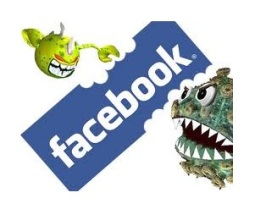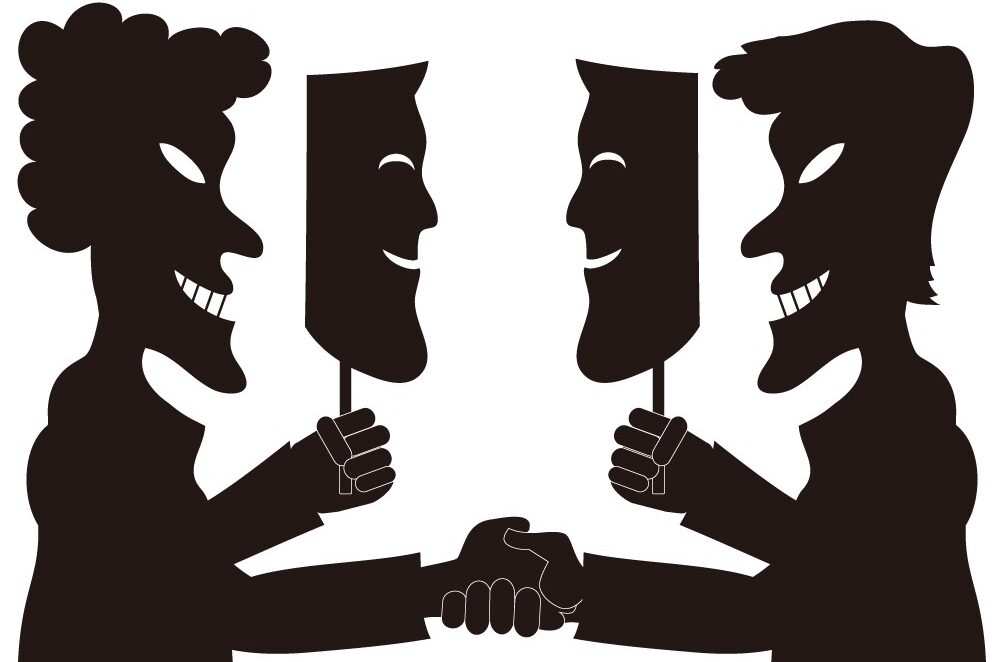
Imagine giving a stranger all your personal details, including your social security number and other related critical-personal information. Just thinking about doing that is illogical to say the least, no one in their right sense would do such a thing. Appallingly, folks unknowingly are doing just that over social media sites. Social media sites such as Facebook, Linked in, and twitter contain the finer points related to your identity.
According to computer experts and online privacy experts.
You are most likely unknowingly sharing personal details such as, profession, marital status; cellular phone numbers, email address and personal photographs, as well as videos which are all considered bits of information that can be pieced together by professional e-criminals.
A study conducted by Massachusetts Institute of technology (MIT), students Carter Jernigan and Behram Mistree revealed that how easily they were able to predict significant details on people’s sexual orientation on facebook. The study was based on analyzing 4,000 profiles of men; the purpose of the experiment was to figure out how many profiles belonged to gay men. The study managed to yield results with nearly 78% accuracy predicting their sexual orientation.
The federal trade commission is also worried about the rapid growth of social media technology and its failure to keep up with user-privacy. Although, social media sites allow users to customize their privacy setting, experts say it’s not enough to keep e-fraudsters away.
Even if you have strict security setting on your social media profiles, chances are others users such as friends, relatives, and co-workers on social media sites may end up revealing critical personal details on you, and that’s usually enough for a determined identity thief to figure out your social security number – it’s like putting pieces of puzzle to form the big picture sort of speak.
Simply by analyzing twitter and flickr accounts, researchers were able to predict the patterns of users by the links they posted and their email addresses. Such small bits of info can then be combined with other related information which can be useful in figuring out vital personal information such as social security numbers, say experts.
Personal computers aside, even smartphones and tablet computers are part of the problem experts say. Many social media sites now have mobile applications, when users download these applications they often give users the option to find their friends. Most users, without any reluctance click the “ok” button, and it makes you wonder how easy it is to find your friends on social media sites. Moreover, some apps can fetch contact information, such as phone numbers, email addresses and other personal information.
Experts warn that people need to be very vigilant about their privacy. Users should avoid sharing any information about themselves on social media sites. Moreover, data security experts highly recommend that people should avoid connecting to unsecured networks in public places, most identity thieves use sophisticated software to skim through your hard-drive on unsecured networks. Moreover, if you like many others have stored confidential data on your laptop/desktop, such as e-statements, copies of driver’s licenses, passport copies or tax related documents that contain your social security number, then it’s imperative that you have such data encrypted with data security software such as
Folder Lock.
Negatives Of Social Media

1. Cyberbullying: Social media can be a breeding ground for cyberbullying, which is when someone is harassed, threatened, or embarrassed online.
2. Inappropriate Content: Social media can be used to spread inappropriate content such as violence, hate speech, and pornography.
3. Lack of Privacy: Social media can be used to invade users’ privacy and track their activities.
4. Addiction: Social media can be highly addictive and can lead to users not being able to access the system. This can lead to frustration and decreased productivity. Additionally, if there is a security breach, it can lead to the loss of confidential data or financial information.
What Is The Most Harmful Effect Of Social Media?
The most harmful effect of social media is the potential for users to be exposed to inappropriate content such as violence, hate speech, and pornography. This can have long-term psychological and emotional effects on its users, and can lead to dangerous behaviors. It can also lead to cyberbullying and other forms of online harassment.
Dark Side Of Media
The dark side of media is the potential for it to be used to spread misinformation, manipulate public opinion, and sow division and hatred. It can also be used as a tool by malicious actors to spread malicious content, such as malware and phishing scams, and to target vulnerable populations.
Most Negative Social Media Platform
There is no one single platform that can be considered the most negative. Different platforms have different issues and can be used in different ways. For example, Facebook has been associated with spreading misinformation and hate speech, while Twitter has been linked to cyberbullying and harassment.
Harmful Content On Social Media
Harmful content on social media includes anything that is intended to cause harm or distress to another person, such as cyberbullying, hate speech, harassment, and malicious content like malware and phishing scams. It can also include content that is intended to target vulnerable populations, such as children or those with mental health issues.
Affects Of Social Media Mental On Health
Social media can have a significant impact on mental health, both positively and negatively. On the positive side, it can provide a platform for people to connect with others, share their thoughts and feelings, and find support from a community. On the negative side, it can be a source of stress, anxiety, and depression due to the intensity of the online environment, the potential for cyberbullying, and the potential for comparison with others.
What Can You Replace Social Media With?
There are many ways to replace social media with activities that can help improve mental health. Some alternatives include:
• Spending time outdoors, in nature, or engaging in physical activity
• Spending time with family and friends
• Reading books or engaging in creative activities
• Volunteering or giving back to the community
• Practicing mindfulness or meditation
• Pursuing hobbies or interests
• Seeking professional help if needed.
Least Popular Social Media
The least popular social media platform is generally considered to be Google+. It was launched in 2011, but failed to gain traction and has since been shut down. Other less popular social media platforms include Ello, Peach, and Vine.
Why Is Social Media Addictive?
Social media can be addictive because it can be a source of constant stimulation, validation, and connection. It can offer a sense of belonging and community, and it can be used to escape from reality. Additionally, the constant notifications, rewards, and updates can create a sense of urgency and dopamine-driven reward that can be difficult to resist.
